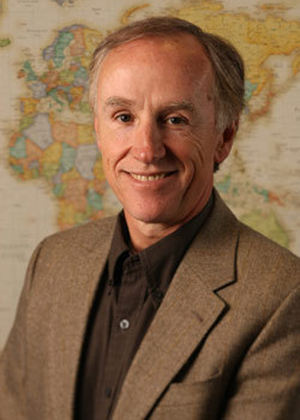 David Cortright
David Cortright
Diplomacy appears to be on the rise. Not only has a negotiated agreement replaced military threats in Syria, a diplomatic breakthrough with Iran now also seems plausible.
President Barack Obama and Iranian President Hasan Rouhani both will speak at the United Nations on Tuesday (Sept. 24).
“The signals from Iran have been encouraging of late, with Rouhani promising ‘constructive engagement’ and Supreme Leader Ali Khamenei urging ‘heroic leniency’ in talks with the West,” says David Cortright, director of policy studies at the University of Notre Dame’s Kroc Institute for International Peace Studies. “Achieving progress with Iran will be difficult given the deep differences between Washington and Tehran. Each side will need to make a conciliatory gesture to break the ice. Iran desperately wants sanctions relief and would probably offer significant concessions in return for an easing of economic pressure.”
Obama reportedly is reluctant to offer sanctions relief until Iran agrees to negotiated limits on its nuclear program.
“Maintaining the leverage of sanctions makes sense,” Cortright says, “but this does not preclude the option of offering partial sanctions relief now to get the bargaining process underway. A decision to suspend non-military sanctions could open the door to significant Iranian concessions. Some non-military sanctions could be suspended for an initial period of six months, which could be renewed if Iran responds positively with concrete limitations on its nuclear program.
“The decision to suspend some sanctions could be combined with an indication that other sanctions will be lifted on a step-by-step basis if the Iranian side reciprocates in establishing greater transparency and binding limits on its nuclear program,” Cortright says. “The advantage of sanctions suspension is that it allows for quickly re-activating sanctions if Iran does not respond in kind or attempts to exploit the gesture. It is a way of offering what the Iranians want most and provides a concrete test of their declared sincerity in building more constructive relations with the international community.”
Read Cortright’s op-eds on Iran in TIME, and on Syria in TIME and the Christian Science Monitor.
David Cortright is on the faculty of the University of Notre Dame’s Kroc Institute for International Peace Studies, where he writes, speaks and teaches on nuclear disarmament, economic sanctions and non-military strategies for defeating terrorism. He has served as consultant or adviser to the United Nations, international think tanks and the foreign ministries of numerous countries. He blogs at davidcortright.net.
Contact: David Cortright, 574-631-8536, dcortrig@nd.edu